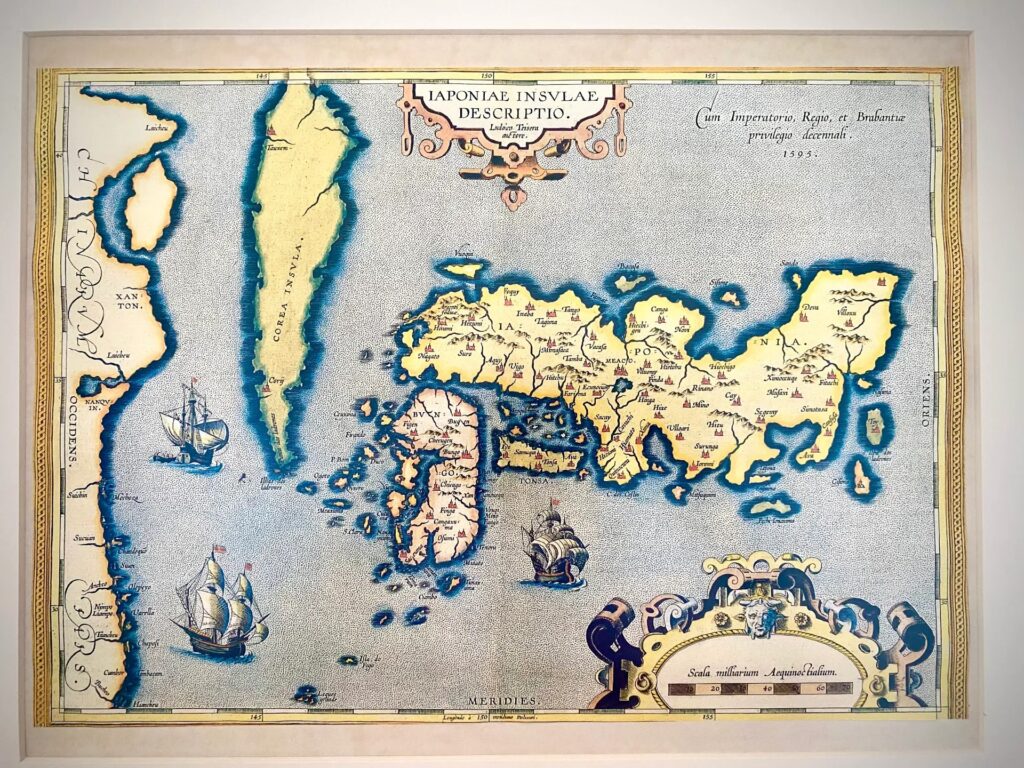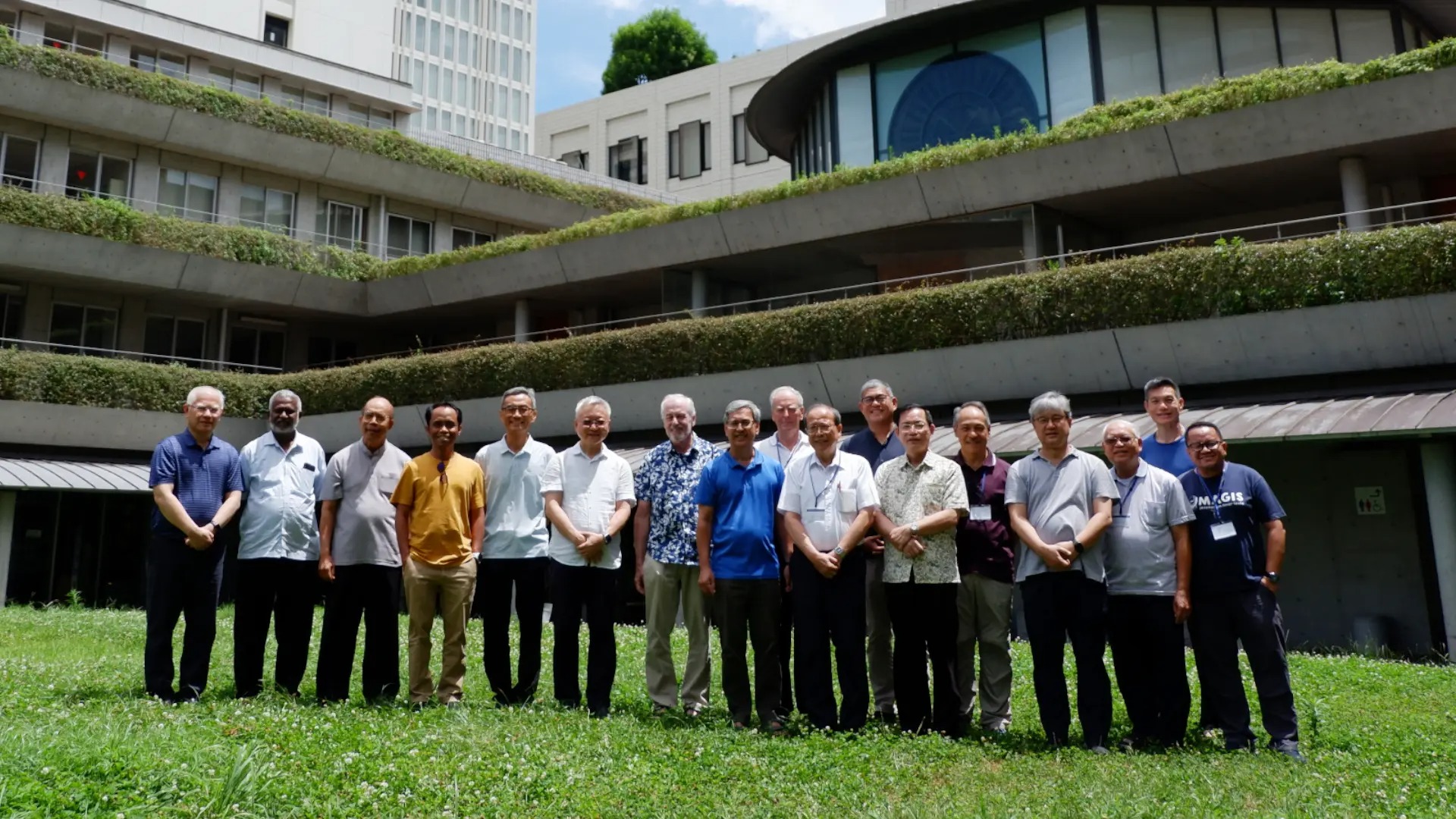The JCAP major superiors recently gathered in Tokyo for their biannual assembly. Kibe Hall, adjacent to St Ignatius Catholic Church, was the venue for the five-day meeting. It began with Fr Tsutomu Sakuma SJ, Provincial of Japan, introducing the history of the Jesuits in the country.
In 1549, the great missionary St Francis Xavier arrived in Japan, setting off on a long and storied foray into the country to spread Christianity. The persecution of Christians began in 1597, and finally, by 1858, the last of the systematic persecution ended.
In 1908, Pope Pius X sent three Jesuit missionaries to Japan, and by 1913 Sophia University was founded in Tokyo. It was granted university status in 1928 and is the oldest Catholic university in Japan.
In 1948, Japan became a vice-province, and a decade later it became a full-fledged province. Fr Pedro Arrupe SJ—who had served as vice-provincial—took on the role of provincial. Today, there are over 140 Jesuits present across Tokyo, Kobe, Hiroshima, Yamaguchi, and Nagasaki. They run parishes, schools, spirituality centres, and social apostolate works, despite the fact that Japan is an ageing province and faces dwindling vocations. One of their biggest challenges is reaching out to the youth because there are fewer and fewer Jesuits left working in the basic education schools: Eiko Gakuen in Kamakura and Sophia Fukuoka are Jesuit schools but have no Jesuits. Thus, supporting the high schools with Jesuit presence is a priority, and the province is working on strengthening its youth ministry. It continues on its mission with both Japanese and foreign missionaries, carrying out the dream of St Francis Xavier with true commitment and hope.

Further into the assembly, consultant for planning JP Villanueva gave a recap of the fruits from the session on apostolic planning from the previous assembly held in Palau. After combing through the province apostolic plans, Villanueva highlighted certain commonalities throughout the conference. To harness the potential in these common areas, he proposed the creation of collaboration hubs, which may be used in co-creating strategies that foster joint action.
To deepen the vision, the major superiors participated in a “mini” co-design workshop where they answered the query: If we are truly a collaborative conference in 2035, what would be different? Certainly the answers were diverse–from the practical to the poetic–but the importance of discernment in common emerged, signifying it as a necessary tool in order to achieve true collaboration within the conference.
As the JCAP Apostolic Plan for 2021-2025 comes to a close, a new journey begins for a renewed apostolic plan framed by the Universal Apostolic Preferences of the Society of Jesus, taking into consideration the Asia Pacific context. Undeniably, the next three years are crucial as learning, discerning, and governing phases unfold. There is much work to be done not only on the level of the provinces, regions, and missions but also within the various networks of JCAP.
A guest from Rome, Br Michael Schöpf SJ, director of Jesuit Refugee Service (JRS) International, attended the assembly in person. He presented the strategic framework of JRS, a global apostolate of the Society of Jesus, which serves 1.2 million people in 58 countries. Br Schöpf recalled Fr Pedro Arrupe’s inspiration and vision for JRS: “to render a service that is human, pedagogical, and spiritual”. While much has changed since the time of Fr Arrupe, when there were around 6 million refugees and displaced persons worldwide, currently there are around 123 million, JRS continues its mission to stay with the refugees. To bring the plight of refugees and displaced persons closer to home, Br Schöpf recalled the words of former JRS International Director (and former JCAP President) Fr Mark Raper SJ’s words: “The history of JRS is about the lives and hopes of people we know personally.”
In Asia Pacific, there are around 17 million refugees and internally displaced people. The challenges faced in this part of the globe are plenty, not to mention the difficulty in negotiating the politics of belonging, with some countries reluctant to commit to the Refugee Convention, and the overarching threat of the climate poly crisis.
JRS is active in several countries across Asia Pacific, including Myanmar, Thailand, the Philippines, Malaysia, Cambodia, Indonesia, Singapore, and Australia, covering work from education to food, medical, and psychological support, from advocacy to accompaniment. Br Schöpf hopes to see a stronger connection fostered between JRS and the JCAP Migrants and Refugees Network.
Br Michael Schöpf SJ
From Loyola House of Studies in Manila, Fr Roger Champoux SJ from the Philippine Province joined the group on Zoom. Fr Champoux provided an insightful talk on Safeguarding, focusing on Jesuit Integrity and Accountability. He started out with the historical context of abuse in the Catholic Church, charting a clear timeline that shows the dark legacy of this issue, which remains a problem to this day. In Asia, abuse cases are not always brought to light because of certain cultural factors: the topic of sex is often repressed, respect for elders or persons in power is emphasised, shame and embarrassment hold sway in Asian societies, and exposing a case of abuse taints the victim as much as the offender.
Fr Champoux reminded the group of the instructions of St Ignatius, who vowed that there should be special care for the instruction of children, including the protection of children. Bringing those instructions to the present day, he mentioned Fr Adolfo Nicolas SJ, who advocated for a just and compassionate protocol for handling allegations, as well as guidelines and policies for ethical pastoral conduct, emphasising respect for boundaries and clear accountability, and that the Jesuits receive ongoing formation to ensure these protocols and policies are practised. Today, Fr General Arturo Sosa SJ mandates the promotion of a consistent culture of protection and safety through a comprehensive formation and training programme aimed at safeguarding minors and vulnerable persons.
Fr Mark Ravizza SJ, General Counsellor for Formation, also addressed the assembly online. Fr Ravizza spoke in great detail about the importance of formation in the Society, from the early stages until final vows, the perpetual vows of a Jesuit of poverty, chastity, obedience, and the fourth vow of obedience to the pope. This was an especially enriching conversation with Fr Ravizza, as a big part of a major superior’s duty and responsibility lies with the formation of Jesuits under his care.
At the end of five days of discussion, discernment, prayer, and participation, the major superiors of JCAP continue to look both outward and inward, dealing with the realities of present and the challenges of future, always with hope.

